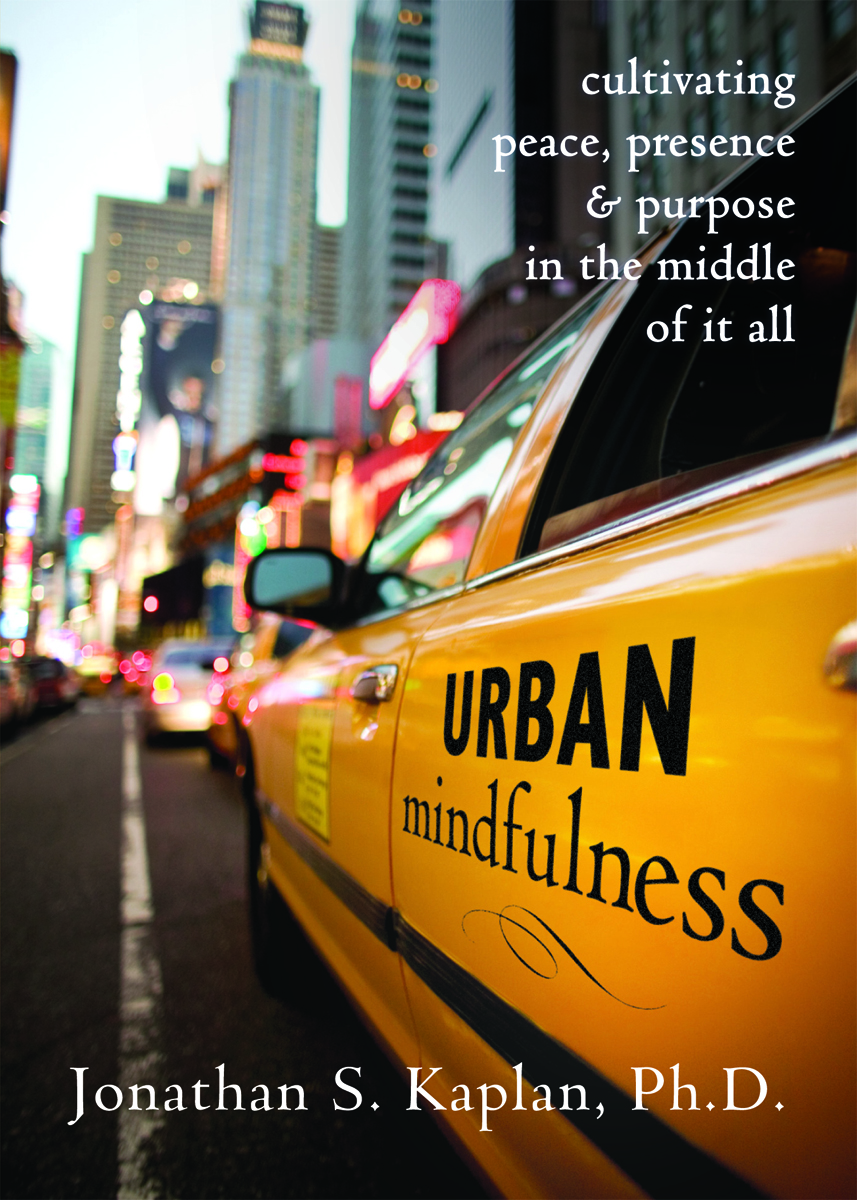By Jonathan Kaplan, Ph.D.

In the spring, I sat down with Sharon Salzberg who graciously shared her wisdom about practicing mindfulness, compassion, and gratitude in the city. Here is Part 2 of the interview, in which she discusses dealing with two realities of our urban existence, (1) encountering homeless people and (2) being barraged by noise. For Part 1 of the interview, please click here:
Compassion in the City, Part 1. For more information on Sharon, please check out her bio. at the end of the interview or visit her website:
Sharon Salzberg.
This weekend, Sharon is co-leading a workshop with Robert Thurman at the Tibet House retreat in the Catskills! For more information, just click here:
Working with Your Enemies. She also is co-leading a weekend workshop at Tibet House in November on mindfulness and awareness:
Healing Power of Awareness.
Homelessness
Jonathan: What about being and being with homeless people in the city?
Sharon: It’s a rare and precious thing to be close to suffering because our society—in many ways—tells us that suffering is wrong. If it’s our own suffering, we try to hide it or isolate ourselves. If others are suffering, we’re taught to put them away somewhere so we don’t have to see it. Ironically, in that situation, our own feeling of helplessness or powerlessness can start taking center stage compared to this person and his or her circumstances. So, I really believe in small good deeds. It may seem small and inconsequential in the moment, but I really think that this is how the world changes. It might mean smiling or looking someone in the eye or paying attention to our own reactions or judgments. It may not be that you can solve their housing issue or address the housing policies of the city, but you can be there with them. Human recognition is a very significant thing, and certainly fits our efforts in a more comprehensive way. This person is not an object. This person is a person.
Jonathan: I wonder what would happen if we could all adopt that perspective.
Sharon: We tend to have a very linear sense and a lot of impatience, especially in the city. It’s very hard to tell ourselves, “Okay, I didn’t see an immediate fruition of my action; therefore it’s still worth doing.” [Laughs] We like things to manifest right away, and they may not. Many times, we’re just planting a seed and we don’t know exactly how it is going to come to fruition. It’s hard for us to realize that what we see in front of us might not be the end of the story.
Alarms and Sirens
Jonathan: Car Alarms?
Sharon: It’s a good signal to see if you’re really stressed. Are you having a significant reaction? If so, you might need a break. My friend Joseph Goldstein took a resolve to be mindful when he brushed his teeth. The first thing he noticed was how tightly he was holding on to the toothbrush, as if it were a jackhammer about to leap out of his hand and cut-off his head. He realized that he might be applying inappropriate energy to a lot of things, like shoving against a door or holding something too tightly. It became a whole avenue of exploration for him. As soon as we realize these things, we know that our systems are on overload. Maybe we can relax a little bit. Instead of watching the 80th episode of Law and Order, maybe we should just breathe.
Brief BiographySharon Salzberg is cofounder of the Insight Meditation Society (IMS) in Barre, Massachusetts. She has been a student of Buddhism since 1971, guiding meditation retreats worldwide since 1974. Sharon’s latest book is The Kindness Handbook, published by Sounds True. She is also the author of The Force of Kindness, published by Sounds True; Faith: Trusting Your Own Deepest Experience, published by Riverhead Books; andLovingkindness: The Revolutionary Art of Happiness, published by Shambhala Publications. For more information about Sharon, please visit:
http://www.SharonSalzberg.com.
 Thursday, September 2, 2010 at 03:21PM
Thursday, September 2, 2010 at 03:21PM  Submitted by Jonathan Kaplan, Ph.D.
Submitted by Jonathan Kaplan, Ph.D. book,
book,  urban in
urban in  Awesome News!,
Awesome News!,  Mindfulness
Mindfulness  book,
book,  urban in
urban in  Awesome News!,
Awesome News!,  Mindfulness
Mindfulness 



